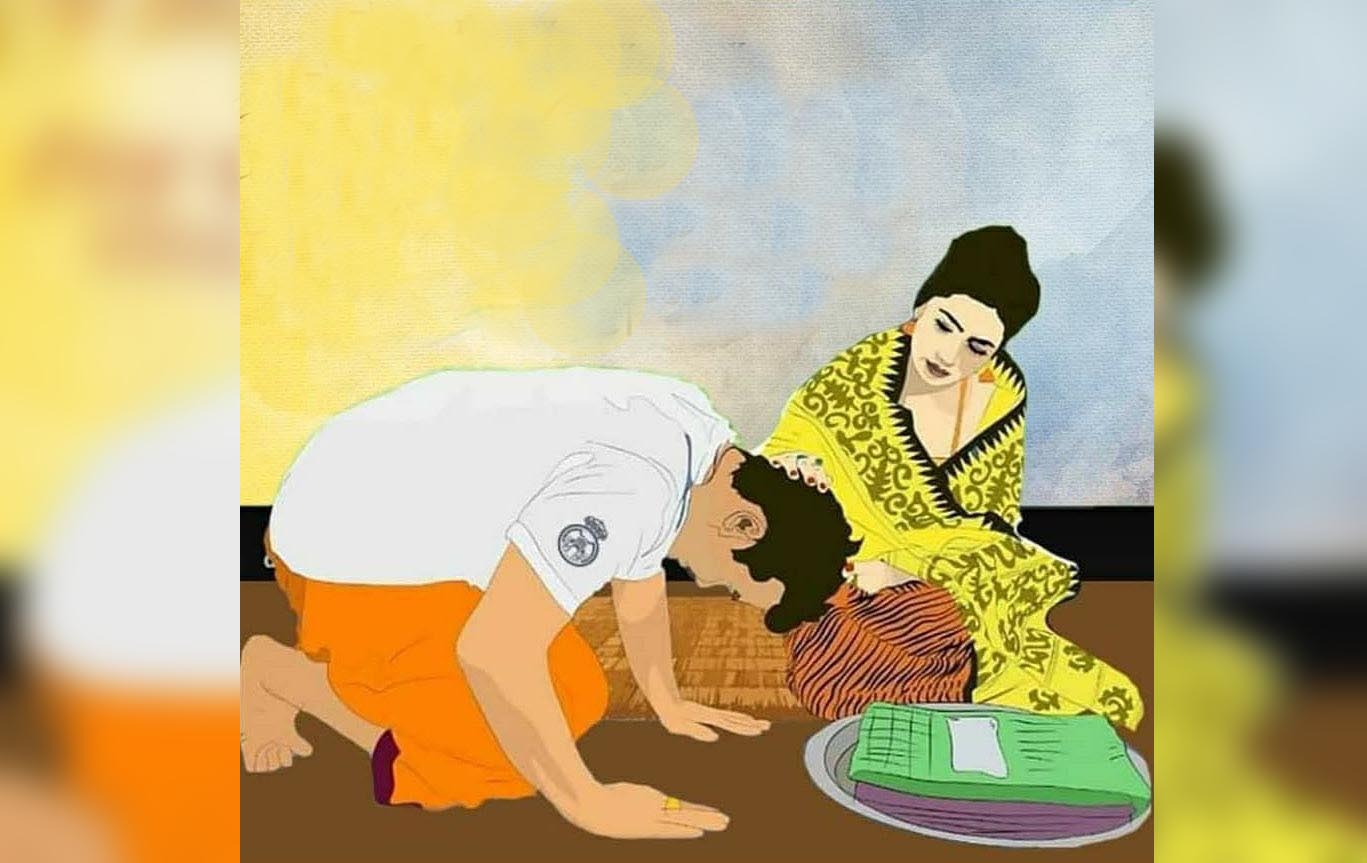We are once again on the threshold of another cycle of the winter magic. It is indeed happy serendipity that many, if not most of the widely celebrated festivals in Manipur and its neighbourhood come in winter. Diwali (once referred to as Jibanita amongst the Meiteis) and Kut opened the season on November 1. On November 3 will be Ningol Chakouba, one of the most endearing festivals, now acquiring a more universal visage, though originally a Meitei festival. Come December and there will be Christmas and then the celebration of the onset of another New Year on the January 1. Happy though the onset of this season is, there is also a peculiar air of sadness still in the air. The tragic and bloody conflict between Meiteis and Kuki-Zo tribes is still far from being resolved, though there are signs of fatigue ensuring there is relative calm. But this calm, as the saying goes, still continues to carry an air of the silence of the graveyard.
All the same, this is a season of nostalgia. Ningol Chakouba, in particular its celebration at Chadong village on November 1 organised by the Indigenous People’s Forum, Manipur, was endearing. The celebration by all communities for families of mixed marriage appealed for the end to the conflict and for the effort of all to heal the wounds. As at Chadong, the mood of the festival today is one of a mix of joy, nostalgia, sadness but most of all optimism that Manipur and all its communities will pick themselves up from where they have fallen and rise again together. There cannot be a more appropriate occasion than Ningol Chakouba for this optimism of universal human bondage to return. The festival is indeed a rare institution that Manipur’s rich and long tradition established, demonstrating before the world that this society intuitively and genuinely cares for fraternal ties, in particular loves the female child. Ningol Chakouba is also a demonstration that the feminine gender has a very special and warm corner in Manipur’s heart.
That the women of all communities in Manipur have been at the forefront of the society is a fact, but it is not a standalone phenomenon. For indeed, in their coming to be free and independent to participate as equal partners of their men in economic and social activities, the social environment they are in has always had a huge role. In fact, it is this environment that not only gave them the liberty, but also nudged them to be their sovereign selves.
But this social environment is changing in practically all spheres, as all social environment must, being the living organism that they are. Irresistible forces of globalization, shifts in economic paradigms, reformations in social moorings, winds of modernism etc, have all made sure traditions never remain stagnant. It would be wrong to try and shut out these forces of change. In any case they cannot be, for as the age old wisdom teaches us, time and tide waits for no man. The correct attitude must be to treat them as challenges to be handled and ultimately taken advantage of, rather than threats to be fought or run away from.
Family reunions are a time equally of pain and joy. So would Ningol Chakouba be for many. It would be a time for loved ones to be together but also a time to remember loved ones lost. In life’s journey, nobody can live forever. This journey can be unpredictable too. Even the young and innocent can be snatched away. All religions seek to provide consolation by advocating the belief that life does not end with death and that there is much more beyond. But there are also those for whom life itself is religion. One is reminded of the 1952 novel by Nikos Kazantzankis “Zorba the Greek”, made into a Hollywood classic in 1964, bagging three Oscars.
On one occasion Alexis Zorba, overcome with the sorrow of death of a young friend approaches a wise old man buried in his books and asks: “Why do the young die?” The wise old man looks up from his books and in a surprised but soft, unperturbed, voice answers: “I don’t know.” Upon this Zorba flies into a rage and shouts: “Of what use are your books and knowledge if you do not know this?” The wise old man, in the tone of a man who understands and empathises with the anguish of the questioner replies: “I read them because they teach me about the pain of people who cannot answer questions such as yours.” Life indeed is defined by both pain and joy. One would be meaningless without the other. So let us all take heart, and live life full.
Together with wishing everybody a very happy Diwali, Kut and Ningol Chakouba, we do earnestly hope peace and tranquillity is restored and life returns to normal in our beloved homeland once again.












